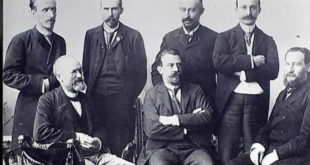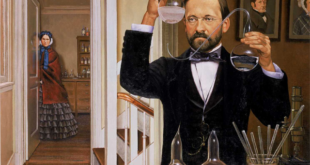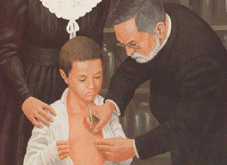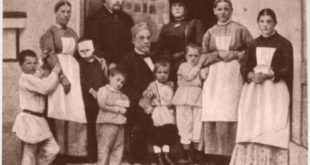Article originally posted in The Druggist, Volume 6, 1884, p. 8
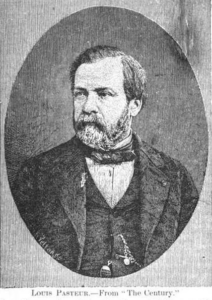
Louis Pasteur, the distinguished chemist, whose portrait is this month presented to the readers of The Druggist, was born at Dole, in the Department of Jura, in 1822. He entered the College of Besaucon as an usher at the age of eighteen, and three years later became a pupil of the Normal School. He became Doctor of Philosophy in 1847; was chosen Professor of Physics at the College of Dijon in 1848; Professor of Chemistry in the Strasburg Faculty of Science in 1852, and was next made a Director of Sciences at the Normal School; then Professor of Geology, Physics, and Chemistry at the School of Fine Arts, and Professor of Chemistry at the Sorbonne. In 1852 he was elected a member of the Academy of Sciences. In 1856 the London Royal Society gave him the Rumford medal, and in 1873 the Copley Medal. The Austrian Minister of Agriculture awarded him a price of 10,000 florins for his researches in the diseases of silkworms. In 1873 the French Société d’Encouragement awarded him a prize of 12,000 francs, and in 1874 the French National Assembly voted him an annual pension of 12,000 francs for life, which has since been doubled. He was elected one of the “Forty Immortals” of the French Academy, April 28, 1882.
Pasteur is eminently, in the American sense, a self-made man, having had no advantages of wealth or position to aid him in beginning his career. He has written much that is of value in chemistry, and the Annales de Chimie et de Physique frequently contain contributions from his pen. It is, however, to researches on the causes of fermentation and on spontaneous generation he owes his world-wide fame. His researches on fermentation led him to investigate the life history of germs, and from these he was led to discoveries which have tended to place the germ theory on a firm foundation. His discoveries disclosed the means of attenuating the virus of chicken cholera and pig pneumo-enteritis and anthrax, and by this means so to vaccinate the animals that an easy recovery from affection was produces, which rendered them impervious to future attacks.
How much practical value his researches have had is show by the results of his discovering the case of the silkworm disease. The silk crop of 1853 amounted to 26,000,000,000 kilograms; it had fallen in consequence of the disease to 4,000,000 kilograms in 1865. By application of the principles discovered by Pasteur the disease has been practically extinguished, and the silk crop now exceeds the standard of 1853.
Pasteur is somewhat of an enthusiast and, like many chemists, is not possessed of a judicial mind. e also displays at times the teutonophobia of the French in a somewhat uncalled for manner. Considering that he has long suffered from a nervous affection, the peculiar feature is not that he displays such idiosyncrasies, but that he exhibits so little of them. His reputation suffers a little at times from the haste he displays to publish his results; much that is crude appearing with the well digested. But curiosity as to what he is doing is so wide-spread that it probably saves him annoyance to satisfy it as soon as possible.
Thanks to the wise policy of the French Government he can now pursue his researches without being troubled as to his finances. With all his defects, he is one of the inner circle of great men of the nineteenth century.
 Pasteur Brewing Louis Pasteur – Science, Health, and Brewing
Pasteur Brewing Louis Pasteur – Science, Health, and Brewing 